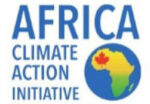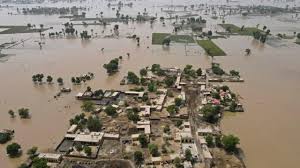News
Strengthening stakeholder engagement in the new loss and damage fund
Strengthening stakeholder engagement in the new Loss and Damage Fund is a vital step towards climate resilience. The 28th Conference of the Parties (COP28), held in Dubai, marked a turning point in the global fight against climate change. Among the myriad of agreements and resolutions, one of the most significant outcomes was the creation of the Loss and Damage Fund (draft decision /CP.28/CMA.5), aimed at addressing the impacts of increasingly serious effects of climate change on vulnerable communities across the world. This historic initiative not only highlights the urgent need for collective action, but also presents a unique opportunity to redefine the role of stakeholders in climate resilience efforts.
The Loss and Damage Fund recognizes the interdependence between climate change, socio-economic vulnerabilities and the imperative for proactive risk management. As we embark on this transformation journey, it is imperative to ensure that stakeholders from various sectors actively participate in decision-making processes. The high-level dialogue held at COP28 served as a crucial platform for policymakers, scientists, civil society organizations and private sector representatives to exchange ideas, share best practices and chart the way forward. towards equitable and sustainable solutions.
Meaningful stakeholder participation at every stage of its implementation is essential to the success of the Loss and Damage Fund. Recognizing the multifaceted nature of climate-induced loss and damage, consultative forums will be created to facilitate inclusive dialogue and foster collaboration among key stakeholders. These forums will serve as incubators of innovative ideas, forge partnerships and mobilize resources to address the various challenges posed by climate change.
In the spirit of inclusion and transparency, the consultative forums will be structured to take into account the diverse perspectives and interests of stakeholders. Civil society organizations, through their grassroots connections and advocacy expertise, will play a central role in amplifying the voices of marginalized communities and ensuring their needs are properly addressed in the fund's initiatives. Additionally, universities and research institutes will provide invaluable knowledge and expertise to improve the scientific basis of decision-making and drive innovation in adaptation and mitigation strategies.
The private sector, with its entrepreneurial spirit and financial resources, will be mobilized to drive investment in climate-resilient infrastructure, technologies and practices. Through public-private partnerships and innovative financing mechanisms, the private sector will not only contribute to the fund, but also benefit from the opportunities presented by the transition to a low-carbon economy. Additionally, international financial institutions and development agencies will play a catalytic role in mobilizing concessional financing and technical assistance to help vulnerable countries build resilience and adapt to climate impacts.
As we embark on this collective effort, it is imperative to harness synergies among stakeholders, maximize efficiency in resource allocation, and ensure accountability and transparency in decision-making processes. The Loss and Damage Fund is more than just a financial mechanism; it embodies our shared commitment to solidarity, equity and resilience in the face of climate adversity. By fostering a culture of collaboration and cooperation, we can unlock the full potential of stakeholders to catalyze transformative change and build a more sustainable and resilient future for generations to come.
In conclusion, the creation of the Loss and Damage Fund at COP28 opens a new chapter in global climate governance, marked by increased stakeholder engagement and collective action. By harnessing the expertise, resources and creativity of diverse stakeholders, we can confront the existential threat of climate change and chart a path toward a more equitable, more prosperous and more sustainable world. As we embark on this journey, let us seize this historic opportunity to forge partnerships, mobilize resources and empower communities to build a future resilient to the challenges of climate change. Together, we can reverse climate change and create a better future for all.

